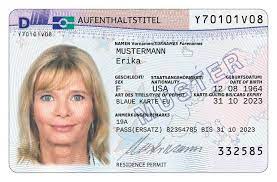In most cases, individuals must obtain a residence permit in foreign countries to stay for a long period, usually a few years. Supposing that you are planning to immigrate to another country, permanent residence is usually the first step. The Schengen area, a united zone of 27 European countries attracts a large number of travelers and immigrants due to its fully-equipped social welfare system, livable environment, and educational and job opportunities. It includes Austria, Belgium, Croatia, Czech, Denmark, Estonia, Finland, France, Germany, Greece, Hungary, Iceland, Italy, Liechtenstein, Lithuania, Luxembourg, Latvia, Malta, Netherlands, Norway, Poland, Portugal, Spain, Slovenia, Slovakia, Sweden, Switzerland.
Requirements to become a permanent resident in the Schengen zone differ from country to country. Therefore, the chances of being approved also vary. In this passage, we are going to talk about which Schengen country is easy to get PR and how to apply for it.
What Is Permanent Resident in Schengen Country
A permanent resident in Schengen country is a citizen from outside the Schengen area who is allowed to live for a lifetime target state and enjoy almost the same social benefits as local citizens. After holding the status for a certain period, one is given priority to obtain citizenship. Moreover, PRs of any Schengen member state can travel freely within the area without extra visas.
How To Apply for Permanent Resident in Schengen Countries
There are several common permanent residency pathways, including investment, employment, family reunion, etc. Most Schengen countries grant permanent residence to foreign nationals who have been living in a host country for consecutive 5-7 years. Therefore, to become a permanent resident in Schengen countries, you usually need to obtain a long-stay visa to enter the country and a temporary residence permit after arriving. After living in the host country for the required duration, you might be qualified to apply for PR status. However, there are unique pathways to gain PR status quickly.
Golden Visas
It is an immigration program that allows the wealthy to get a residence permit or even citizenship in another country through investment or donation. Acceptable investment options include purchasing a property, buying a company’s shares, stocks, public debt, or government bonds, creating job opportunities, and investing in the country’s scientific or technological innovation. The investment amount requirements might vary from $200,000 to more than $2 million.

After making your investment, you can apply for a Golden Visa at the local embassy or other certified overseas missions by presenting proof of enough capital, a legal source of the money, no criminal record, and proof of financial support during your stay.
This program is available in 8 Schengen countries, including Austria, Germany, Greece, Malta, Portugal, Spain, Switzerland, and Hungary.
EU Blue Card
It is issued to highly skilled professionals with non-EU nationalities to work in the issuing country. With this card, one can enjoy Equal work and pay to national citizens, travel freely between EU countries, apply for social benefits, and have the right to live permanently in the hosting country after working for 33 months or reaching B1 language level knowledge for 21 months.
To be eligible for the program, the applicants must satisfy the following requirements:
- hold a master’s degree (or equivalent)
- have no less than 5 years of work experience in their field.
- have received a job offer or signed a contract with length of employment for 1 year or longer.
- be paid at least minimum wage for regular professions or be paid 1.5 times or 1.2 times the average salary for professions in shortage in the EU country where you will work.
- meet national legal requirements for regulated professions.

Source: Wikipedia
Schengen countries, except Switzerland, Norway, Liechtenstein, Iceland, Czech, and Denmark, all issue EU Blue Card. Some member states require the employer to submit the application domestically and some require you to apply from the embassy of your country.
Which Schengen Country Is Easy to Get PR
Requirements vary across different countries. In this section, we will introduce Schengen countries where your PR application is more likely to be approved.
Greece
Two types of residence permits allow non-EU citizens to settle in Greece permanently: permanent residence and long-term residence. The former is a permanent status available to family members of Greek citizens or Golden Visa holders. The latter is issued to those who have been living in Greece for 5 years and should be renewed every 5 years.
As an investor, you have the following options to invest.
- Purchase real estate or land worth at least €250,000.
- Invest at least €400,000 in a Greek company, a company with a registered office in Greece, or a company mainly focusing on the Greek real estate industry.
- Purchase Greek government bonds worth at least €400,000 with at least 3 years left before maturity.
- Purchase securities worth €400,000.
- Open a deposit account at a local bank with an amount of €400,000.
Spain
Non-EU citizens are allowed to obtain permanent residency in Spain after getting temporary residence. Moreover, applicants must comply with the following requirements.
- You have enough income or financial resources.
- You have valid health insurance in Spain.
- You have lived in Spain for 5 years. with a temporary residence permit, such as an employment visa, student visa, non-lucrative visa, or investment visa.
If you apply for PR through a Golden Visa (also known as an investment visa), you should choose between the following options.
- Investment in real estate property worth at least €500,000.
- Investment in company stocks or deposits in a Spanish bank worth at least €1,000,000.
- Investment in the Spanish public debt worth at least €2,000,000

Portugal
Portugal is one of the participating countries in the Golden Visa program, providing opportunities for investors and their dependents to become a permanent resident in Schengen countries. To be eligible for the program, one must live in the country for 5 years and meet one of the following requirements.
- Donate €500,000 to the scientific or art culture.
- Open a deposit account of €5,000,000 in a Portuguese bank.
- Purchase property worth €500,000 or €400,000 in less populated areas.
- Purchase older, refurbished properties worth €350,000 or €280,000 in less populated areas.
Malta
Malta, as a small island with exquisite scenery and vibrant cultures, is becoming a popular choice for work, study or immigration. There are several ways to obtain permanent residency in Malta, which are listed below.
- Permanent residency through employment
It applies to foreign nationals hired by a Maltese employer. Individuals must have lived for 5 years with a valid work permit and adequate accommodation in the country.
- Permanent residency through investment
It is much more straightforward to get PR status. A significant financial investment in Malta is required, such as property renting for €10,000+ per year (in southern Malta or on Gozo island ) or €12,000 per year (in northern or central Malta), or property purchasing for €300,000+ per year (in southern Malta or on Gozo island ) or €350,000 per year (in northern or central Malta).
Hungary
Foreign nationals who satisfy the conditions below are eligible for permanent residence in Hungary.
- You must legally live in the country for at least 3 years with a residence permit and be able to feed yourself.
- You have health insurance or enough funds to cover healthcare services.
- You are an immediate family member of a Hungarian citizen and another country’s national with immigrant, permanent resident, or refugee status.
The Hungary Golden Visa (or Guest Investor Visa) is considered a convenient pathway to residency. There are 3 options to invest.
- Investing €250,000 in the local real estate market.
- Investing €500,000 in private properties.
- Donating €1,000,000 to a government-certified Public Trust.
What Schengen Country Can I Move to Without a Job
Although employment is the most common way to settle in another country, there are times when someone hasn’t got a job offer but is still looking forward to moving to another country. Is it possible? The answer is yes. Unemployed people can move to another country through volunteer activity, non-lucrative business, study, investment, or job seeking. In this section, we will introduce some Schengen countries that accept foreign nationals to move with a job.
- Spain
Spain issues non-lucrative visas to those who can live on their sufficient income or savings. To apply for this visa type, applicants should present a comprehensive healthcare plan and proof of annual income of no less than €28,800. If there is a dependent included in your application, an annual income of about €7,200 is required for each dependent.
Moreover, supposing that you are an international student graduating from a Spanish college or educational institution, the Spanish government will issue a job search visa, allowing you to find a job after graduation instead of being expelled.
Last but not least, Spain allows the fiance or spouse of a Spanish citizen to legally live in the country.
- Portugal
Portugal also issues non-lucrative visas with which the holders can live in the country for at least six consecutive months or eight non-consecutive months per year. To be eligible for the visa, a job offer is not required, but you must have a Portuguese bank account and sufficient funds to support you and your family members’ lives in Portugal.
- Netherlands
Non-EU/EEA/Swiss citizens without a job can move to the Netherlands by applying for a Dutch family reunification visa, startup and self-employment visa, working holiday visa, or Dutch-American Friendship Treaty (DAFT) visa. The permitted length of stay ranges from one to five years.
Which Country is the Easiest to Get PR After Study in Europe?
Some countries welcome international students to settle down after receiving higher education. Let’s see what they are.
- UK
With a lot of world-class universities and colleges, the UK is a popular destination to study. International students are allowed to have a 2-year work permit after graduating from educational institutions in this country. If you can prove that you are excellent enough, you might also be granted British PR.
- Ireland
The Irish government provides international students with various scholarship programs and grants. They might give permanent residence to those who have stayed in Ireland for 5 years and outside Ireland for consecutive 6 months after education.
- Denmark
It is featured with the highest retention rates after graduation in Europe. International graduates are eligible to apply for permanent residency if they have lived in Denmark for 4 years during which they had full-time jobs, passed the Danish language exam, earned 290,000 kroner per year in the last 2 years and passed an active citizenship exam.
- Finland
It is home to many high-ranking universities around the world. International students can apply for Finland PR after graduation. It is valid for one year, but quite easy to be renewed as long as you are hired by a Finnish employer.
FAQ
Q: After getting PR, which country allows you to bring your parents to live with you?
A: A permanent resident in Canada, Australia, and the United Kingdom can sponsor parents to live together.
Q: Can I get UK PR in 2 years?
A: Yes, if you have been married to, in a civil partnership, or in a relationship with a partner who entered the UK with a work visa and settled in the UK.
Q: Which Schengen country allows dual citizenship?
A: Belgium, Croatia, Czech, Denmark, Estonia, Finland, France, Greece, Hungary, Italy, Luxembourg, Latvia, Malta, Poland, Portugal, Spain, Slovenia, Slovakia, and Sweden.
Summary
If you are planning to move to Europe and enjoy the well-established social welfare policy, a permanent resident in Schengen country is suggested with which you are allowed to travel freely within the area. It is commonly seen to obtain PR through employment, investment, and family reunions. After reading this passage, you must have found the answer to the question “Which Schengen country is easy to get PR?” Among the 27 member states, it is more possible to apply for PR status from Greece, Spain, Portugal, Malta, and Hungary. They have different requirements and pathways, so please learn about the detailed instructions before applying.